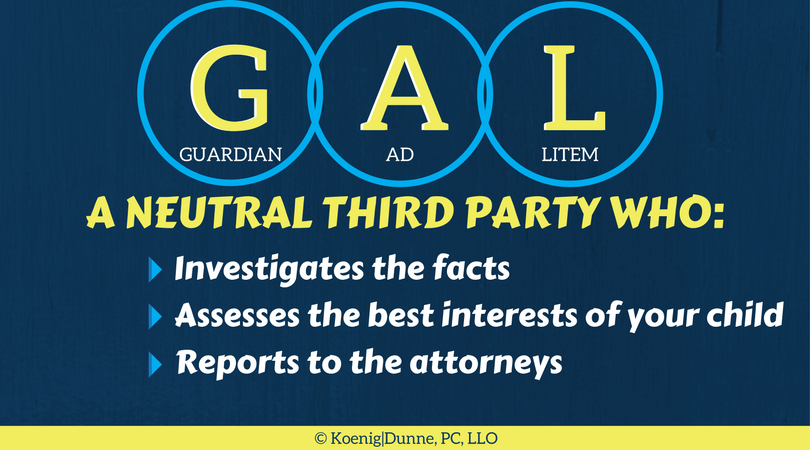If custody and/or parenting time issues are contested, it may be helpful for a neutral, third party to step in to help assess what’s in the best interests of your child. A guardian ad litem (GAL) is someone who is appointed by the court for this purpose. GALs are usually lawyers with special training.
You may ask your judge to appoint a GAL at any point if you believe that the assistance of a neutral person, whose sole purpose is to assess your child’s best interests, would be beneficial.
Talk with your family law attorney about requesting a GAL if –
- You want your child’s wishes to be heard, but do not want him or her to have to talk to the judge,
- Your spouse is abusive (physically, verbally, emotionally) towards your child,
- Your spouse has addiction issues,
- You’re concerned about your child’s safety during your spouse’s parenting time, or
- You and your spouse are making other serious allegations against the other regarding parenting.
Your GAL will spend time with your child and observe his or her surroundings. He or she will investigate the facts. Your child will have the opportunity to tell the GAL what his or her wishes are. The GAL may wish to review your child’s school records and medical records. Additionally, the GAL will likely interview those closest to your child to get a full picture of your child’s world.
If your judge appoints a GAL, the GAL will be ordered to prepare and submit a report to the attorneys with the GAL’s observations and recommendations. The report will likely consist of statements made to the GAL by the parents, child, and relatives. It will explain the GAL’s reasoning for how he or she arrived at his or her ultimate recommendation. GALs are appointed to be solution-based. They will not “side” with either parent. Your GAL may also be called to testify at trial by either parent.
There are additional strategic moves to consider before requesting a GAL or determining whether to call the GAL as a witness at trial. Additionally, GALs can be costly. The cost will typically be shared by the parents, but not always. At Koenig│Dunne, we can support you in deciding whether a GAL will bring value to your case.
[/column]

